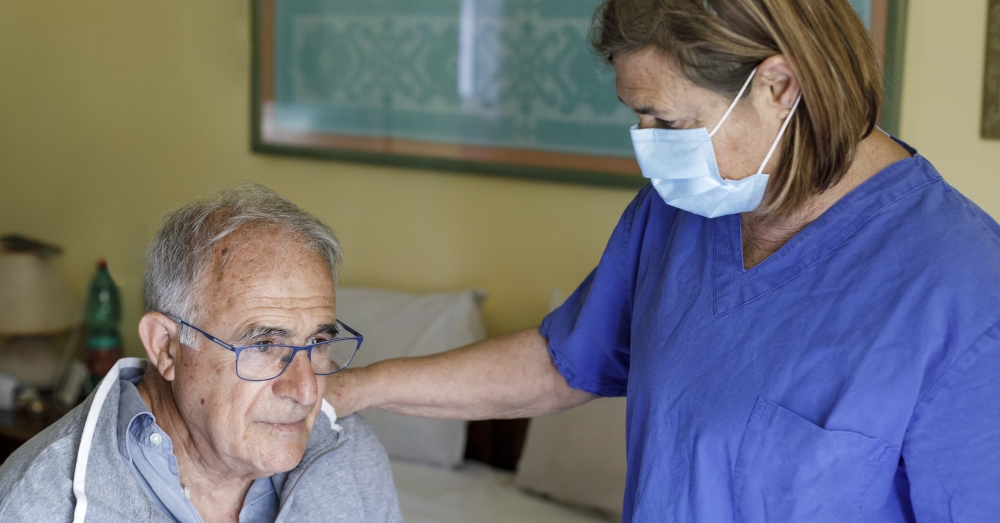
Teepa Snow’s Tips for Dealing with a Senior Who Is Anxious, Depressed, or Isolated
Seniors who live alone or in facilities away from their loved ones often struggle with depression, anxiety, and other issues related to isolation. During the COVID-19 pandemic, however, these problems have been exacerbated for many older individuals.
Teepa Snow, MS, OTR/L, FAOTA, is a dementia care and education specialist with a background in occupational therapy and over 30 years of experience, which has taught her a lot about how people with dementia think and what can be done to help them cope with this horrible disease. In an effort to improve care and quality of life for dementia patients (and their caregivers), Teepa leads classes and makes videos focused on difficult dementia-related situations, such as violence, swallowing, and confusion.
In the video below, Teepa talks about the isolation seniors endure and how it affects them, particularly if they have Alzheimer’s or another form of dementia. Dementia sufferers often forget what’s going on around them, making it difficult for them to understand why their loved ones can’t come to visit and why they must socially distance themselves from those around them. Many of them may begin to think they’ve done something wrong to be punished by being confined to their rooms.

On top of that, the staff members interacting with people with dementia in care homes are required to wear personal protective equipment like masks and face shields during COVID-19, which may be scary for some dementia patients and may also muffle their voices so that it’s harder to understand what they’re saying.
Of course, there’s Zoom or Skype, but many people with dementia don’t have any idea how to use these technologies. Some can’t even use a phone without help, and there may not be enough staff available to help people with dementia make the calls to their family that they want to make. This leaves many elderly people without any way to contact their friends and family.
Luckily, Teepa has some tips that caregivers can use when dealing with an elderly person who misses their family and friends or who is dealing with anxiety and depression stemming from isolation.

One of the biggest problems Teepa says occurs in this type of situation is simply that caregivers don’t recognize the signs of anxiety and depression. She says caregivers should be on the lookout for patients rocking back and forth, pacing, not wanting to talk, losing interest in daily activities, fidgeting, or picking.
At that point, it’s important to try to reengage the person and see what can be done to help them feel better. Sensical explanations may not be totally helpful, but knowing the right thing to say to comfort a person will be. Coming up with activities to keep the person happily busy is also helpful. And finding new ways for the person to interact with their family is also important, such as setting up a communication device like an iPad that can be on all the time for the patient to communicate with a close family member without having to figure out how to work the device.

Teepa’s goal is to help people turn a dementia diagnosis into something more manageable. Dementia and its symptoms can be tragic and difficult to deal with, but there are some things we can do to make life with dementia worth living and keep people with the disease happy and healthy during their final years.

Check out the video below to learn more about what Teepa suggests for caregivers who are handling a dementia patient who is isolated, anxious, or depressed. Find most of the tips toward the end of the video (at the 60-minute mark), but feel free to watch the whole thing for some great information!